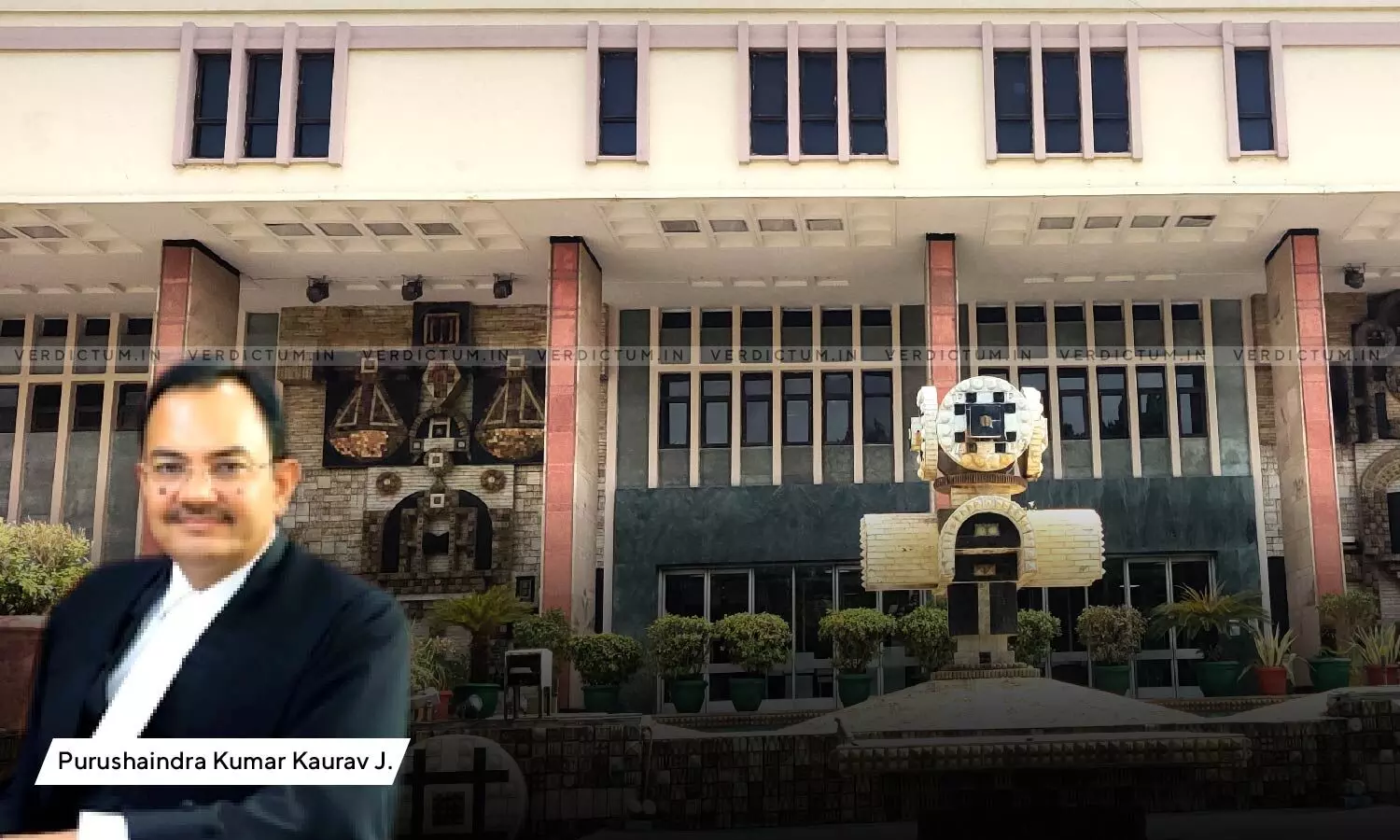
Justice Purushaindra Kumar Kaurav, Delhi High Court
MCD Can Issue Show Cause Notices To Levy Conversion Charges For Commercial Use Of Industrial Plots: Delhi High Court
 |
|The Delhi High Court observed that the levy of conversion charges for change in user, from industrial to commercial is not merely incidental but central to the discharge of its municipal functions.
The Delhi High Court held that Municipal Corporation of Delhi (MCD) can issue show-cause notices (SCNs) to levy conversion charges for commercial use of the industrial plots.
The Court held thus in a batch of Writ Petitions filed by Delhi Factory Owners’ Federation and others against the MCD exercising power to levy conversion charges for carrying out commercial activities in industrial areas.
A Single Bench of Justice Purushaindra Kumar Kaurav observed, “… when the MPD 2021 and the provisions of the DMC Act are read in a conjoint and purposive manner, it becomes abundantly clear that the issuance of show cause notices by the MCD seeking to levy conversion charges for commercial use of industrial plots is not an action bereft of jurisdiction. On the contrary, it is an exercise of power squarely within the municipal domain, undertaken in furtherance of its statutory obligations to regulate land use and augment civic revenues. Therefore, the challenge to the jurisdiction of the MCD in issuing such notices is wholly untenable and without merit.”
Senior Advocate Dayan Krishnan, Advocates Varun Goswami, Amit Gupta, Avadh Bihari Kaushik, Vivek Kumar Tandon, and Aditya Mittal appeared on behalf of the Petitioners while Senior Advocate Sanjay Poddar appeared on behalf of the Respondents.
Facts of the Case
In the lead case, the Petitioner was a society registered under the Societies Registration Act, 1860. Its members were owners and operators of industrial units in Delhi, engaging in industrial activities, including Knowledge-Based Industry [KBI] and Information Technology Enabled Services [ITES]. It primarily operates in Okhla Industrial Estate, Phase-III, New Delhi, occupying plots which were allotted for industrial purposes.
However, the MCD alleged that the Petitioner was using the premises for commercial offices, constituting a commercial activity warranting the levy of conversion charges. The Petitioner sought to challenge the office order issued by the MCD, whereby the MCD sought to levy conversion charges, along with all consequent notifications, orders, and circulars issued pursuant thereto. The Petitioner also sought an order restraining the Respondents from taking any coercive action against it.
Reasoning
The High Court after hearing the arguments from both sides, noted, “The levy of conversion charges for change in user, from industrial to commercial is, therefore, not merely incidental but central to the discharge of its municipal functions. Such levies serve both regulatory and fiscal purposes: they ensure conformity with planning objectives while simultaneously enabling revenue generation essential for local governance and civic infrastructure.”
The Court said that the position is further reinforced by the counter affidavit filed by the Delhi Development Authority (DDA), which categorically affirms that the competent municipal authority is empowered to impose and collect conversion charges. It further remarked that even the DDA being the statutory planning body under the DD Act has acknowledged that the operational responsibility for assessment and collection of these charges lies with the concerned municipal body.
“This affirmation not only lends institutional endorsement to the jurisdiction of the MCD but also reflects the collaborative statutory framework envisaged under the MPD 2021 and the DMC Act”, it also added.
The Court, therefore, issued the following directions –
i. The jurisdictional challenge to the impugned show cause notices stands failed.
ii. The Petitioners shall file their response/revised response to the impugned show cause notices within two months from the date of passing of the Judgment.
iii. Consequent thereto, the MCD shall pass a speaking order within four months, after affording due opportunity of hearing to the Petitioners.
iv. Thereafter, aggrieved party shall have the liberty to challenge the decision as per the extant rules and regulations.
v. Since the interim orders have been in operation since 2016, therefore, in the interest of justice, they shall be in operation till the MCD passes a final order.
Accordingly, the High Court disposed of the Writ Petitions.
Cause Title- Delhi Factory Owners’ Federation v. South Delhi Municipal Corporation & Ors. (Neutral Citation: 2025:DHC:5295)